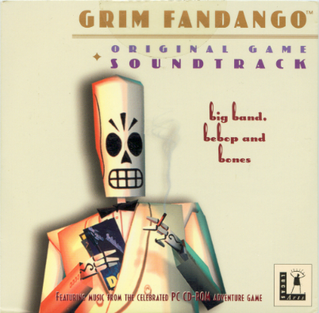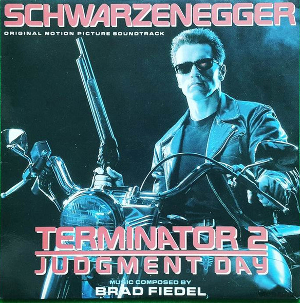
Baraka is a 1992 American non-narrative documentary film directed by Ron Fricke. The film is often compared to Koyaanisqatsi, the first of the Qatsi films by Godfrey Reggio for which Fricke served as cinematographer. It was photographed in the 70 mm Todd-AO format, and is the first film ever to be restored and scanned at 8K resolution.

Lisa Germaine Gerrard is an Australian musician, singer and composer and member of the group Dead Can Dance with music partner Brendan Perry. She is known for her unique singing style technique (glossolalia). She has a dramatic contralto voice and has a vocal range of three octaves.

Chronos is a 1985 abstract film directed by Ron Fricke, created with custom-built time-lapse cameras. Originally released in IMAX theaters, it is now available on DVD, Blu-ray and HD DVD.

The Serpent's Egg is the fourth studio album by the Australian band Dead Can Dance, released on 24 October 1988 by record label 4AD.

Amadeus is a 1984 American period biographical drama film directed by Miloš Forman, and adapted by Peter Shaffer from his 1979 stage play of the same name, in turn inspired by the 1830 play Mozart and Salieri by Alexander Pushkin. Set in Vienna, Austria, during the latter half of the 18th century, the film is a fictionalized story of Wolfgang Amadeus Mozart from the time he left Salzburg, described by its writer as a "fantasia on the theme of Mozart and Salieri". Mozart's music is heard extensively in the soundtrack. The film follows a fictional rivalry between Mozart and Italian composer Antonio Salieri at the court of Joseph II, Holy Roman Emperor. The film stars F. Murray Abraham as Salieri and Tom Hulce as Mozart. Abraham and Hulce were both nominated for the Academy Award for Best Actor, with Abraham winning the award.

Donnie Darko: Music from the Original Motion Picture Score is a soundtrack album by American musician Michael Andrews, released in April 2002 on Enjoy and Everloving Records. It contains music from the 2001 science fiction psychological thriller film Donnie Darko, written and directed by Richard Kelly. It consists of 16 instrumental tracks and two covers of "Mad World" by Tears for Fears sung by American singer Gary Jules.

The score from The Empire Strikes Back composed by John Williams. Between Star Wars and The Empire Strikes Back, Williams had also worked with the London Symphony Orchestra for the scores to the films The Fury, Superman and Dracula. The score earned another Academy Award nomination for Williams. Again, the score was orchestrated by Herbert W. Spencer and Angela Morley, recorded by engineer Eric Tomlinson and edited by Kenneth Wannberg with supervision by Lionel Newman. John Williams himself took over duties as record producer from Star Wars creator George Lucas.

Ben Frost is an Australian-born musician, composer, record producer, sound designer and director currently based out of Reykjavík, Iceland.
Michael Stearns is an American musician and composer of ambient music. He is also known as a film composer, sound designer and soundtrack producer for large format films, theatrical films, documentaries, commercials, and themed attractions.

Once Upon a Time in the West: The Original Soundtrack Recording is a soundtrack composed by Ennio Morricone, from the 1968 western film of the same name directed by Sergio Leone, released in 1972. The film score sold about 10 million copies worldwide.

Snow White and the Seven Dwarfs is the soundtrack from the 1937 Walt Disney film, notable as the first commercially issued soundtrack album. The recording has been expanded and reissued numerous times following its original release in January 1938 as Songs from Walt Disney's Snow White and the Seven Dwarfs .

West Side Story is the soundtrack album to the 1961 film West Side Story, featuring music by Leonard Bernstein and lyrics by Stephen Sondheim. Released in 1961, the soundtrack spent 54 weeks at No. 1 on Billboard's stereo albums charts, giving it the longest run at No. 1 of any album in history, although some lists instead credit Michael Jackson's Thriller, on the grounds that this run for West Side Story was on a chart for stereo albums only at a time when many albums were recorded in mono. It did also spend 6 weeks at the top of the Billboard chart for mono albums. In 1962, it won a Grammy award for "Best Sound Track Album – Original Cast". In the United States, it was one of the best-selling albums of the 1960s, certifying three times platinum by the RIAA on November 21, 1986.

Quadrophenia is the soundtrack album of the 1979 film Quadrophenia, which refers to the 1973 rock opera Quadrophenia. It was initially released on Polydor Records in 1979 as a cassette and LP and was re-released as a compact disc in 1993 and 2001. The album was dedicated to Peter Meaden, a prominent Mod and first manager of The Who, who had died a year prior to the album's release.

Dead Can Dance is an ambient, world music band which has released nine studio albums so far, two live albums, four compilation albums, one video album, one extended play and nine singles. The band formed in Melbourne, Australia in 1981 but relocated to London, United Kingdom in 1982 and signed with 4AD Records where they disbanded in 1998.

The Fruit Machine is a 1988 British film thriller starring Tony Forsyth, Emile Charles, Bruce Payne and Robbie Coltrane in the role of "Annabelle." The film, which was directed by BAFTA-winner Philip Saville, is about two gay teen friends who are running from an underworld assassin and the police. It was produced by UK TV company Granada Productions. The film showcases the rising careers of actors Coltrane and Payne, as well as a future Academy Award winner, composer Hans Zimmer, who wrote the soundtrack.
Christopher Hugh Neal is an Australian musician, songwriter, record producer and television and film music composer. His scores include Buddies, Bodyline, The Shiralee, Turtle Beach and Farscape.
This is the discography for Australian musician Lisa Gerrard.

Hello, Dolly! is the soundtrack album to the 1969 musical film of the same name, performed by Barbra Streisand, Walter Matthau, and Michael Crawford. Originally released on vinyl by 20th Century Fox Records, then reissued on Casablanca Records; the soundtrack was remastered for compact disc release by Philips Records in 1994. This album marked the second time Streisand recorded for a label other than Columbia.

The music for the video game Grim Fandango was composed and produced by Peter McConnell and published by LucasArts in 1998. The soundtrack is a mix of South American folk music, jazz, swing and big band sounds, for the game story filled with adventure and intrigue set in a unique combination of film noir and Mexican folklore's Day of the Dead. The soundtrack garnered critical acclaim and remained subject of positive reviews and inclusion in critics' rankings for the two decades after its first release. The soundtrack was praised both as a stand-alone musical experience, as well as for its outstanding contribution to the overall game experience; capturing the spirit of the game, "gluing" the story together, and becoming "integral" to the success of the game.

The original score to the 1991 science-fiction action film, Terminator 2: Judgment Day is composed by Brad Fiedel. The film, directed by James Cameron is a sequel to the 1984 film The Terminator, and the second instalment in the Terminator franchise. Fiedel who scored for the first film using synthesisers and electronic instruments, had produced the score for Terminator 2, in an "acoustic and organic manner". According to Fiedel, he created the score in such a way, to bring a "warmer tone" on depicting the relationship with young John Connor and the Terminator. The recording and production process involved two CMI machines and synthesisers, with an ensemble orchestra assisting the electronic sounds.

















